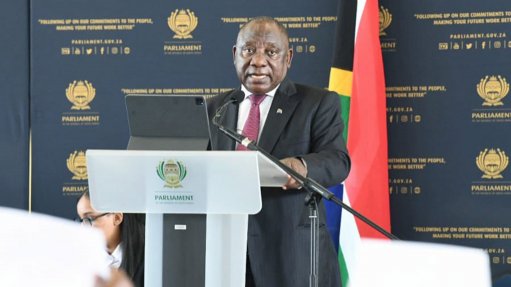
President Cyril Ramaphosa
President Cyril Ramaphosa said on Monday that public participation in decision-making is democracy itself, and allows the State to make better decisions.
Ramaphosa wrote in his weekly letter to the nation that public participation built trust between government, communities and stakeholders. He said it empowered citizens with the knowledge that their voices were heard.
He highlighted that as the country’s democracy matured, the principle of participatory democracy had often been taken for granted.
Ramaphosa said public participation in the country’s democracy was not done superficially, as shown by the laws that were passed, and the way in which laws were considered and debated.
“In recent times, we have seen communities asserting their rights in various ways. The environmental impact assessment process, for example, requires meaningful consultation with a range of interested and affected parties before an authorisation for a development is granted. This provision has supported grassroots citizen activism seeking to protect their communities and the environment against harmful practices,” said Ramaphosa.
This year he led five Presidential Izimbizo, in North West, Free State, Mpumalanga, Gauteng and Northern Cape.
He said through these izimbizo, citizens had an opportunity to engage directly with mayors, Premiers, MECs, Ministers and the President.
“These engagements are interactive and at times robust. They are an important tool of accountability because the respective officials are expected to report back directly and in public to the people on what they are doing to fix their challenges,” he added.
Ramaphosa noted that as government worked to implement the District Development Model across the country, platforms for public participation helped make citizens partners in their own development.
“We are trying to move away from ‘parachuted’ development, where projects are planned in offices hundreds of kilometres away from communities and do not take into account the particular needs of those communities,” he said.
He explained that there were complaints in some quarters that public participation in decision-making was cumbersome, protracted and held back development.
“To the contrary. We come from a past where citizens were completely disempowered by a repressive order that had no regard for the impact of its laws on those most affected by it. We come from a past where companies could build factories and industries with no regard to whether they would damage people’s health, endanger their lives or pollute their environment,” said Ramaphosa.
He said citizens should be proud that everybody had a voice and had ways to hold decision-makers such as lawmakers, businesses or the President to account.